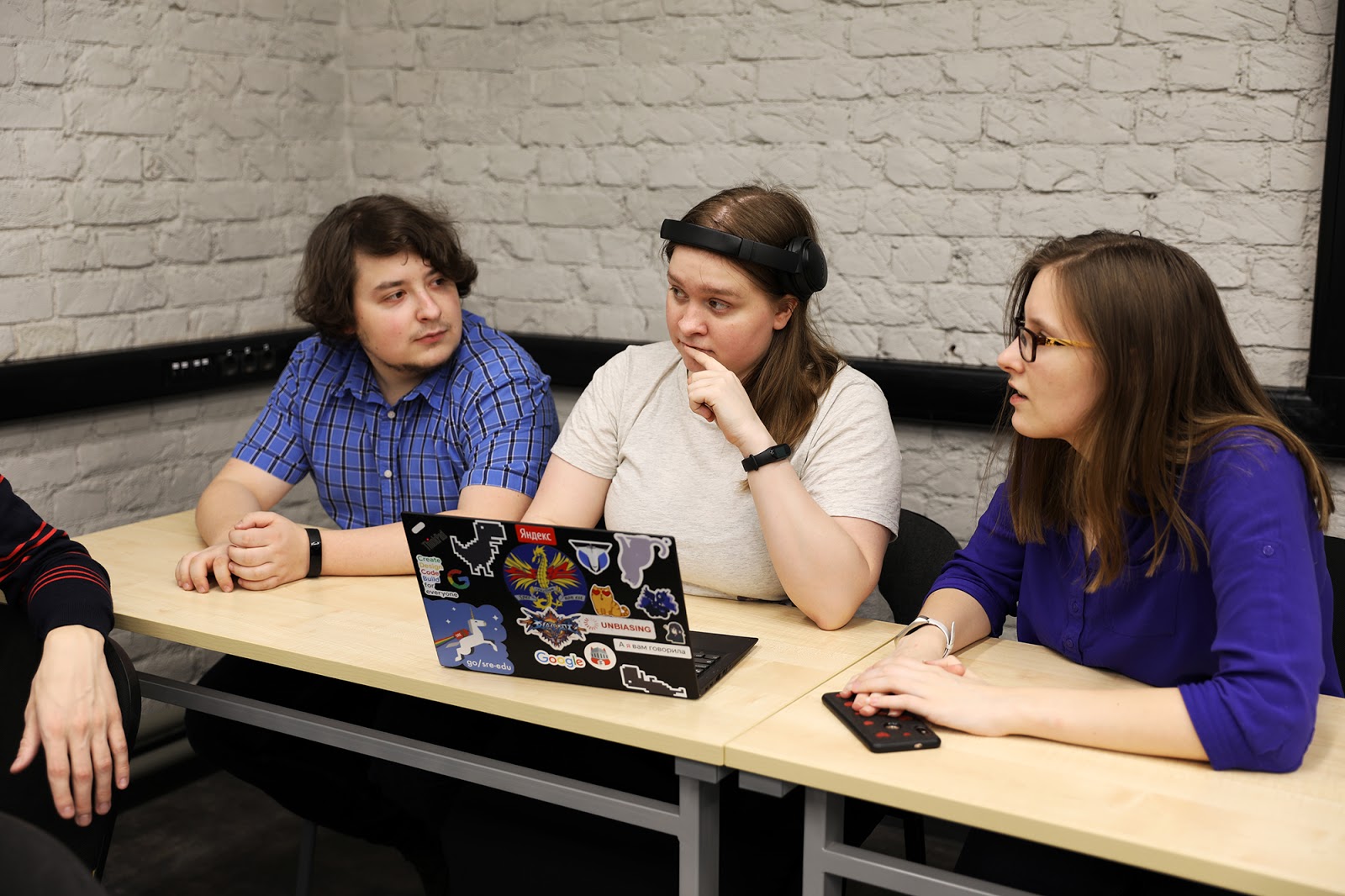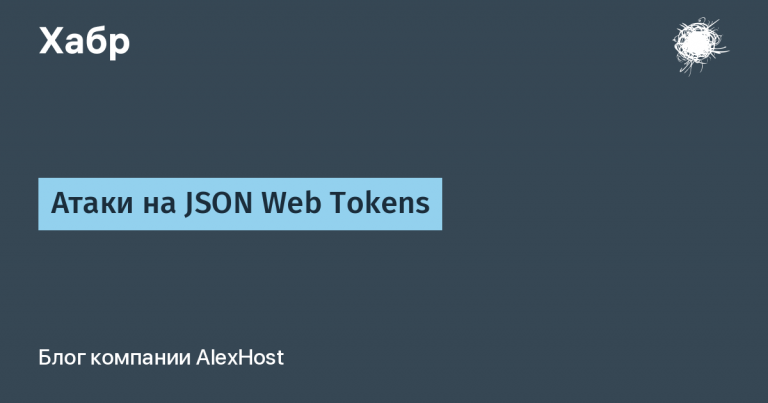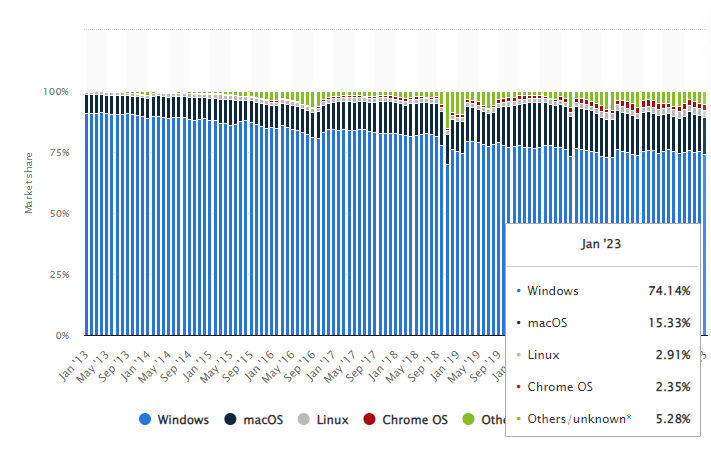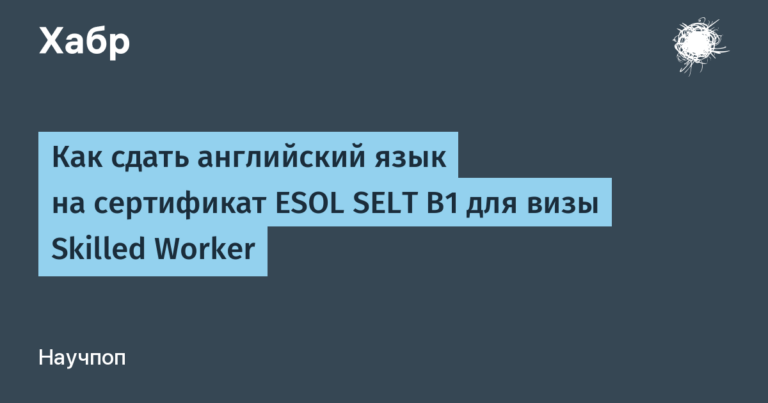How and why curators at the St. Petersburg HSE help freshmen programmers
The curators help the guys cope with the organization, time management, prioritize and solve problems with self-confidence. In a post they tell why they decided to do this, what they learned in the process and what problems freshmen are most likely to encounter.
According to the results of the first set for “Applied Mathematics and Computer Science” at the St. Petersburg HSE (summer 2019), we entered the top five most sought after among applicants of the program “Mathematics” in Russia. The passing score on the budget is 296 for three USEs.
In this post, we already talked about the results of enrollment for the first year of undergraduate studies. Let us briefly recall: in order to understand the amount of students’ input knowledge, on September 1 we conducted testing in mathematics, programming and algorithms. According to its results, freshmen were divided into two streams of 45 people and into groups of 15. The groups were numbered in descending order of the results obtained on the entrance test, and a curator from among senior students of the same program was assigned to each of them.
After the first semester, changes occurred: the flows were combined into one, and the students were redistributed into groups. There are currently four of them. We talked with the curators of these groups, Ilya Kaysin, Igor Tukh, Anya Shvetsova and Anya Nikiforovskaya and the curator of the entire first year, Yegor Suvorov.
Supervision

– Who are the curators? What are their responsibilities?
Anya Shvetsova (4th year student, curator of 3 groups): We communicate with people. We find out what students have problems and how we can help with them. For example, if the group as a whole has difficulty understanding some material, we agree on an additional pair for this material. When one of the students thinks “I’m sad, I can’t do anything”, we give advice on what you can do about it. We also monitor performance – everyone in their group. If a freshman has obvious problems, but he doesn’t think about them yet – for example, if academic performance in a subject has fallen sharply – we talk with him, ask what he thinks about it, and decide how to help him. We have groups of 15 people, so you can pay attention to everyone. And there is Egor – he is the curator of the course as a whole.
Egor Suvorov (2nd year student, 1st year curator): I am contacted if I could not resolve the issue at the group level or if it relates to the entire first course.
– How was the idea of curating born?
Egor Suvorov: In SPbAU, where we studied before, there were usually about 40 students, and our dean Alexander Vladimirovich Omelchenko personally remembered and knew everyone. Although this year the enrollment was almost twice as large, the idea arose to pay more attention to each student. So curators appeared. Not always complete information is reflected in written surveys, and in person can react faster. And the institution of curatorship is one of the features of the HSE. Curators are on all programs.
– How did the curators of our program look for?
Egor Suvorov: There was no strict selection or mass attraction. They simply looked at familiar older students, thought about who would be suitable, and offered them.
Anya Shvetsova: In general, some of us began to communicate with the first year before our studies began. The guys in the chat of the applicants were worried and actively interested in what awaited them, so we wanted to help them somehow.
Anya Nikiforovskaya (4th year student, curator of 4 groups): We decided to talk about what is needed in the first year. From the very first weeks, the delivery of homework begins, and almost all the work needs to be taken in Tex. In many subjects, almost immediately they stop taking handwritten notes. We wanted people to get used to it faster, and in the summer organized a mini-course in Tex for everyone.
Anya Shvetsova: There were three of us: me, Anya and Anton Ermilov. In the chat, we gave out small tasks in which complexity gradually increased and some new elements appeared. Each assignment was accompanied by links to materials that would help to fulfill it. Sometimes the guys sent decisions to us in PM, we watched them and somehow commented.
During this course, we got to know each other well and decided to continue helping the guys after.
Anya Nikiforovskaya: When it turned out that they were looking for curators for freshmen, we just came and said: “We would like to.”
Igor Tukh (4th year student, curator of the 2nd group): Although I did not communicate with the first year as closely as Ani, I heard a cry and thought it was an interesting opportunity. But I had a mercantile reason. Everyone knows that sooner or later a developer can be brought into managers. In curatorship – it’s clear that it’s completely different – but still the opportunity to communicate with people. This may also be useful.
Ilya Kaysin (1st year student, curator of the 1st group): And Alexander Vladimirovich came up to me in the dining room and suggested. So I became a curator (laughs).
Excellent student complex, impostor syndrome, time management and other problems of freshmen
– Is there a difference between overseeing the first and fourth groups?
Anya Nikiforovskaya: In the fourth group, many have problems with self-confidence. Like, there is the first group, they are so cool, but we are not like that, and in general, maybe this place is not for us. At this moment, I always recall that in our first year there was no uniformity. We had both people with experience and without experience. Both the olympiadniki and the people who entered the exam. By the fourth course, both the first and second remained.
The fourth group was in the second stream, and this fact additionally pressed on some guys. Although, in fact, the program was not simplified for the second stream. If for some reason the teacher had to explain something in more detail at the lecture, and because of this, he did not have time to tell some piece of material, then they arranged additional pairs on this subject. The program for the second stream was the same, the same questions on exams.
In my fourth group, three out of sixteen people completed both modules with “good” and “excellent”. And this is a great result! During the study, these guys were worried that they were not comparable with the guys from the groups above, but in fact their objective results are the same.
Anya Shvetsova: Still, it is worth saying that it is easier for people who have had olympiad experience or the experience of school physics students before admission to study here.
Anya Nikiforovskaya: If you haven’t had a lot of study intensity before, it’s hard to join in from the first weeks. And before the exams, and before the deadlines, I literally told students in what order to do the work, if you have N deadlines ahead, or how to make sure that you don’t get nervous on the exam. People with olympiad experience are better prepared for some moments, because olympiads are not so different from exams. And there, and there is a certain level of stress, excitement, to which the Olympiad quickly get used to. “Yes, I’m a little worried, but I can handle it, and I can work in this excitement. I’m even pleased. ” People who do not have this skill are, of course, more difficult. Especially at first.
Ilya Kaysin: The first group has almost no learning problems. You ask them how they are doing – they say: “Everything is in order.” Although there are difficulties, for example, with self-confidence. Some of the guys at the school were among the first, but here they are forced to work hard and are afraid to go down to the group below.
Igor Tukh: In the second group, the situation is a bit contradictory: on the one hand, very strong guys study in it. They usually do it themselves. On the other hand, they may have jitters out of the blue when there is really no problem. And there are also people with an “excellent student complex”. However, now everyone is more or less involved.
Anya Shvetsova: And in the fifth group, which I supervised initially, and in the third, which I supervise now, there were students who are trying to close one subject perfectly and disappear in all the rest. In such cases, you need to help a person with time management, with the organization.
– Did you manage to help with something else?
Anya Nikiforovskaya: I can tell you one case at the session.
A student flies for three debts. One person from my group started the first module very well. In the second module, at first, something did not work out, and then – excitement, some small debts … And at the end of the session two debts accumulated and the last exam remained – matan.
There was a very great fear: “I will not surrender, I will not surrender, I will not surrender.” And a person comes for an exam and fails the first written test. He writes to me after him: “That’s it, the test is overwhelmed. Apparently, I’m flying out. It’s sad. ” I answer: “So. Wait. Are you in the HSE now? ” They write to me: “At the HSE.” I say: “Good. Calm down. Drink some water. And after an hour, go back to your office and ask for an exam. Despite the fact that you failed the first test, go and take the oral part. “
The man listened to me, went and handed over. As a result, he remained and is now studying.
I know from my own experience that teachers are living people. They understand that everything happens. It so happened by chance that the student was worried on a written test, that he was getting a third debt, end of session, December 30th. You can go honestly admit it and show that you know everything further. When the teacher sees that the student really has a desire, of course, he will meet them.
Extra-curricular life

Egor Suvorov: The guys still have time to have fun too. They appear local jokes, memes, public, something else. For example, after dividing into groups in September, one student ended up in the second stream, but he had a very high level of programming, and he was clearly distinguished by grades in this subject. From this grew a public that posted every day that the student had not yet been transferred to the first stream.
Now the flows have merged together and 4 groups remain. Lectures are given for everyone at once.
Anya Shvetsova: Students actively discuss, is this the second stream attached to the first, or the first joined the second? They argue what remained.
– And what is your position?
Anya Shvetsova: We believe that the flow remained the only one (laughs).
– Tell us about extracurricular life.
Egor Suvorov: Curators can meet with students just like that – sometimes this also happens.
Igor Tukh: Now all the students are more or less aligned, understand how to cope with the load, there was some free time. And this is conducive to more informal communication. But at the very beginning, when the guys were just rebuilding after school, and some had everything on fire, it would probably not be entirely correct to talk just like that.
Anya Nikiforovskaya: This fall we went to the Kochubey Center – this is one of the HSE buildings in Pushkin. And on New Year’s Eve, from the time of SPbAU we regularly organize meetings and events where you can chat.
Anya Shvetsova: This year – they gathered with the first course in mid-January to celebrate the holidays. We played board games, I brought VR. We talked with Alexander Vladimirovich. There was an opportunity to chat in an informal setting, while homework has not yet begun.


Results and Impressions
– Do you think it would be easier for you to study if your set had such curators?
Anya Nikiforovskaya: When we were in our first year, we collected feedback in questionnaires, reacted to them, but there was no individual work. I had friends who didn’t do something in the first semester, something didn’t work, and they flew out. There is a chance that they could be explained how to study correctly, how to cope with some minor problems correctly, or they could be transferred to another group, or else reacted somehow and then they could withstand a further load. But then there were no curators, and we ourselves were freshmen and poorly understood what gives and what does not improve.
Igor Tukh: But we had a horizontal support system. In our studies, we helped each other a lot.
Anya Nikiforovskaya: The curators now have no obligation to help students with their studies, for example, solve homework in algebra or matan. If only on volunteer grounds. I tried to help someone with the items in September and October, but it quickly failed me. I had to separate one from the other.
– What are your impressions of the curatorial process?
Igor Tukh: I realized that this activity is much more intense than it seems from the outside. But I am satisfied because I feel that I am doing something useful. Gained experience in resolving situations that seem unobvious.
Egor Suvorov: I also feel that I am doing something useful. One of the insights of curatorship is the realization that living people also work in the university. Need to negotiate. Take into account the limitations of the real world. There is an opportunity in a very large number of places to improve the lives of students, if you understand how, and if there is time and resources for this.

Ilya Kaysin: It’s nice to share your experience, nice to meet new people. With those who came to us, it is doubly nice to meet you. And communication skills are increasing: with both students and teachers. I would like to see how the university will develop further.
Anya Nikiforovskaya: I develop problem solving skills. I learn to solve problems in principle and understand better how to communicate with people in order to solve these problems. Until the fourth year, I was scared to take the initiative and start organizing, even if I didn’t like something. I usually looked for someone to take the first step for me. Now I have the feeling that I can start something myself.
Anya Shvetsova: I love when I can help people with something based on my experience. To suggest life hacks that for me at some point in time would be unexpected, but which I got in the first courses with sweat and blood. I like to simplify the work of other people when it turns out to convey some knowledge to them. Sometimes it’s not very simple: some life hacks need to be customized for people to start working. Now for me there is an interesting difficulty – to find a balance between being friendly and helping people where they ask, and having to at some point switch to a more serious tone when there are problems that need to be discussed seriously.
– And what next year?
Egor Suvorov: What will happen with the second year, how we arrange interaction with the next set is a separate interesting task, which also needs to be solved.
***
Next year, Yegor, Ilya, Igor, Anya and Anya will continue to work with the same groups, and second-year students will become curators for the new set. In the summer they will go through the school of curators of the HSE, then we will separately prepare them for the specifics of our program, and from September the guys will help freshmen.
We hope to tell you about the results of the next school year!





